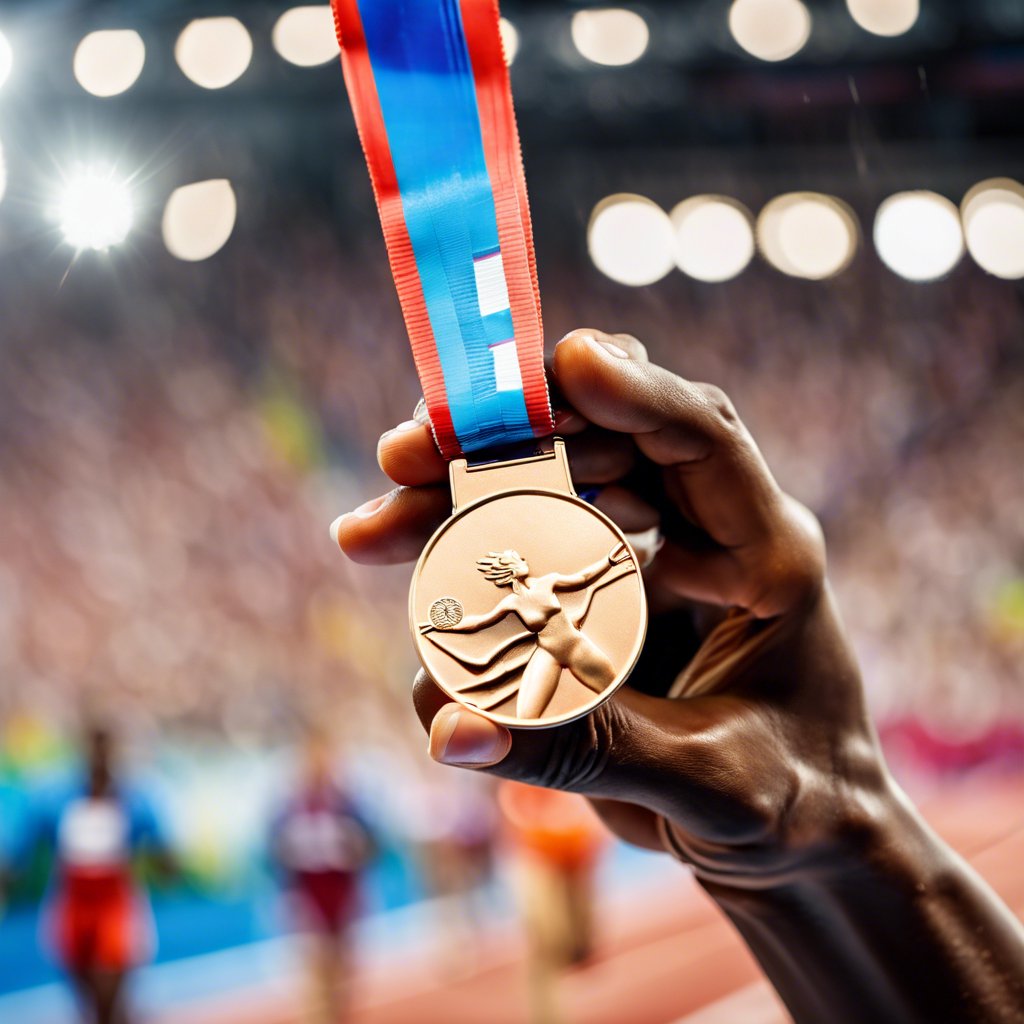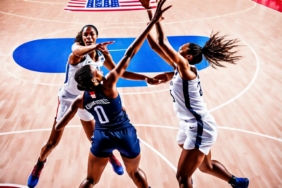Understanding the Post-Olympic Blues
The Olympics represent the apex of an athlete’s career, a culmination of years of dedication and hard work. However, beneath this glittering surface lies a phenomenon that many athletes experience: the ‘post-Olympic blues’. This emotional aftermath is not just a fleeting feeling; it can significantly impact athletes after the competition ends. Notable Olympians such as swimmer Michael Phelps, the most decorated Olympian with 28 medals, gymnast Simone Biles with her seven medals, and swimmers Allison Schmitt and Adam Peaty, who have won 10 and five pool medals respectively, have openly discussed this experience. Together, they have amassed an impressive 34 Olympic gold medals.
Emerging stars like Great Britain’s 800m runner Keely Hodgkinson and U.S. sprinter Noah Lyles have also shared their struggles with the emotional comedown following the Olympic Games.
Expert Insights into Post-Olympic Emotions
Dr. Karen Howells, an academic and sports psychologist, sheds light on the concept of ‘post-Olympic blues’. She notes, “The term was coined by athletes themselves. It’s important to differentiate it from clinical depression, which is a diagnosed mental illness.”
Jessica Bartley, senior director of psychological services for the U.S. Olympic and Paralympic Committee (USOPC), elaborates that the ‘blues’ encompass a wide range of emotions. “We intentionally use the term ‘blues’ to avoid alienating athletes who may not feel sad. For some, it could be anxiety or a mix of emotions. Athletes often report having a perfect experience at the Games, yet the emotional landscape remains complex.”
Prevalence and Symptoms
Determining the exact number of athletes who experience post-Olympic blues is challenging due to the lack of standardized surveys and the often private nature of athletes’ emotions. Dr. Howells hesitates to assign a specific prevalence rate but asserts, “I have yet to meet an Olympian who hasn’t felt the post-Olympic blues.”
A recent study of 49 Danish Olympians and Paralympians revealed that 27% reported below-average well-being or moderate to severe depression. Interestingly, even among those who met their goals, as many athletes reported above-average well-being as those who did not (40%).
Common symptoms include deviations from an athlete’s normal behavior. Dr. Cody Commander, the mental health officer for Team USA during the delayed 2020 Tokyo Olympics, emphasizes the importance of recognizing these changes. “If an athlete who is usually outgoing becomes withdrawn, or if their appetite and sleep patterns shift significantly, these can be indicators of the blues,” he explains. Social withdrawal is increasingly common, with athletes sometimes refraining from responding to messages or calls because they feel overwhelmed.
Negative Coping Mechanisms
Danielle Adams Norenberg, head of psychology at the UK Sports Institute and Team GB psychologist, notes that athletes may resort to “maladaptive responses” following the Games. These can manifest as increased reliance on alcohol, overtraining, or other self-destructive behaviors as they attempt to fill the emotional void.
Dr. Commander describes the emotional toll as a “crash” that follows the immense buildup of pressure and expectation over the years of training. “Once they reach the pinnacle of their careers, many are left wondering, ‘What’s next?’ The absence of structured plans can lead to feelings of being lost and without direction. Elite athletes are accustomed to having every minute of their day meticulously planned, and when that structure disappears, it can be unsettling.”
Normalizing the Experience
Dr. Howells asserts that feelings of emptiness and frustration after significant achievements are universal. “It’s natural to feel disoriented when we reach a long-awaited goal,” she explains. “Emotions like anger and frustration are part of the process.”
Shifts in Support for Athletes
Recent Olympic cycles have seen a paradigm shift towards prioritizing athletes’ mental health and preparing them for life after competition. Bartley shares, “We have a dedicated team of 15 professionals focusing on mental health and performance. We collaborate with countries like Canada, Great Britain, Australia, Denmark, and the Netherlands to share strategies.”
The International Olympic Committee (IOC) has also begun to develop a supportive infrastructure. “At the Games, over 150 mental health providers from various countries are available. We convene to share resources and strategies,” Bartley adds.
Team USA has implemented a new process that includes screening first-time athletes with questionnaires. “Once an athlete makes the team, we discuss available resources, including mental health services and career transition support. We aim to normalize these conversations early on,” says Bartley.
Performance Decompression
For Team GB, the focus is on ‘performance decompression’, a six-stage model designed by the British Institute of Sport before the Tokyo Games. This model draws from military and Red Cross research to prepare athletes for the transition post-Games. The process includes:
- Hot Debrief: Conducted immediately after competition.
- Time Zero: Encouraging athletes to take a break and engage with the present.
- Processing Emotions: A psychological debrief to discuss emotional experiences.
- Performance Debrief: Assessing performance and emotional responses.
Adams Norenberg emphasizes, “We proactively discuss the importance of performance decompression throughout an athlete’s preparation. We encourage them to plan for their post-Games period, ensuring they know when to take a break and when to process their emotions.”
Academic Perspectives
Academics have long recognized the existence of post-Olympic blues. A 1998 study involving 18 Australian Olympic gold medallists found that only a fraction described their experiences as completely positive, with many citing burnout and inadequate support. A similar study of 61 Israeli athletes at the 2012 London Games revealed that a significant number chose to ignore their feelings or isolated themselves.
In 2022, pole vault bronze medallist Holly Bradshaw participated in research alongside Howells and Mathijs Lucassen, conducting focus groups with British Olympians. The findings revealed a troubling mistrust of sports psychologists among athletes, who feared that sharing their struggles could jeopardize their positions on teams. Howells notes that athletes expressed a desire for support from peers who understood their experiences.
The Path Forward
Howells believes that the path to addressing the blues is intricate, stating, “It is more complicated than we initially anticipated. Listening to the athletes is crucial.” She emphasizes that peer support should complement professional sports psychology services, rather than replace them.
In 2020, experts urged national governing bodies to consider the Olympic journey as a five-year cycle, advocating for a robust support system for athletes for at least 12 months post-Games. Recommendations included establishing formal mental health care teams and improving education on mental health for athletes.
The Evolving Conversation Around Mental Health
Stigma surrounding mental health is gradually diminishing, particularly as high-profile athletes share their experiences. The immense pressure and expectations placed on athletes can often overshadow their humanity. A 2023 study on Olympic judokas highlighted the identity crises athletes face when their entire persona is tied to their performance, leaving little room for personal growth outside of sport.
Bartley affirms, “The growing openness about mental health among notable athletes is helping to normalize these conversations, making it easier for current and future athletes to seek help.”
As we move forward, it’s essential to recognize that the journey of an athlete does not end with the Olympics. The conversation around mental health in sports needs to continue, paving the way for a supportive environment where athletes can thrive both in and out of competition.
(Header photos: Getty Images)















